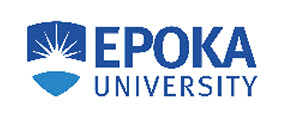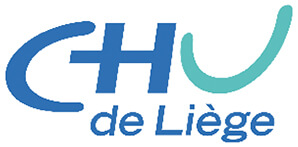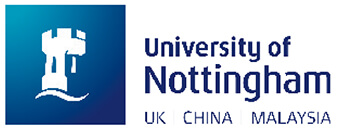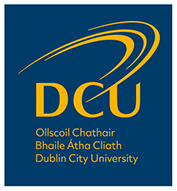Consortium
The PANBioRA consortium consists of 17 partners from 11 European countries, which are active in academia and science, industry, technology transfer as well as clinical trials. Each partner has been carfully selected to ensure the development and the successful implementation of this innovative multidisciplinary approach.


Steinbeis 2i GmbH (S2i) was founded in 2016 as a 100 % spin-off of Steinbeis-Europa-Zentrum (SEZ). The spin-off Steinbeis 2i GmbH has taken over all staff members and competences from SEZ, so that the over 25 years experience of SEZ and the senior expertise of its staff in building innovation capacities in SME and supporting cross-border research and technology transfer is fully guaranteed and now executed by Steinbeis 2i.
S2i is the regional Contact Point for Small and Medium-sized Enterprises in Baden-Württemberg, Germany and member of the Enterprise Europe Network (EEN) since 2008. Moreover S2i is a reliable and experienced partner in the network for European technology transfer, promotion of exploitable European research results and innovation capacity building.
As both administrative coordinator and partner, S2i is not only responsible for the administrative and financial project management, but also for the communication, dissemination, exploitation and management of Intellectual Property Rights (IPR). It has direct contact to the European Commission (EC), acting as an intermediary between the scientific partners and SMEs involved in the project and the EC.
In addition, it coordinates the communication within the Consortium and is responsible for event organisation, such as internal meetings and training sessions.


Spartha Medical was founded in July 2019 and provides versatile/personalised antimicrobial and anti-inflammatory coatings for medical devices The patented, innovative, bioactive and smart coating which has its origins in a FP7 EU project (IMMODGEL) is suitable for surface functionalization of all types of medical devices and also wound management. The personalisable Spartha coatings offer a solution for the protection of implants against infections and chronic inflammation. The solution is based on natural biopolymers and is multifunctional. The innovation’s main characteristica are: 1)Broad-spectrum antimicrobial activity 2)Anti-inflammatory activity 3)Can be applied to any kind of surface 4) Bacteria cannot develop resistance against it
SPARTHA will be the Scientific Coordinator of the PANBioRA project and will be strongly involved in all scientific WPs and plans to arrange the commercialisation of the final system and its separate components. In detail Spartha will provide samples for MVA, cytotoxicity and genotoxicity tests, develop coating samples on specific implant surfaces for mechanical characterization in collaboration with INSERM and Aalto Further, as Scientific Coordinator Spartha will work together with S2i for the financial and administrative management of the project.

Innovation

Dolmen is a leading international product design and innovation consultancy. For the past 27 years Dolmen has worked with multinationals, SME’s, entrepreneurs and research organisations to design award winning and IP rich products and services. Dolmen works across medical device, pharma, ICT, FMCG and Industrial sectors. We make ideas work.
Dolmen will be working with the system integration team in DCU to design the outer housing of the diagnostics device and ensuring the user experience is designed into the device. Dolmen’s design will ensure that the device is useful and useable in the context of the lab. Further Dolmen will ensure that the device is manufacturable at scale.

Innovation center SAS

The Elvesys Microfluidic Innovation Center is a unique innovative company, halfway between a microfluidic private research lab and a biotech start-up incubator. The core business is to establish scientific collaborations with laboratories all over Europe and create new innovative companies whenever these turn out to be successful. Elvesys has been established by a team of former researcher in microfluidics who have left public research for one reason: We firmly believe that microfluidics will represent the backbone of the next biotechnological revolution and we want to establish the pillars of the next biotech valley in Europe.
In order to achieve this goal, Elvesys uses microfluidics to develop new state-of-the-art scientific instruments for European research partners, because new tools are essential to make new discoveries.
Elvesys will offer its know-how on microfluidics and system integration to develop a lab-on-chip platform which allows multiparameter analyses for more efficient and tailored biomaterial risk assessment.
The main tasks of Elvesys within Panbiora will be to:
- Develop immune tissue models and optimised material delivery methods under flow and static conditions
- Integrate biometric in vitro tissue models for automated indirect and direct cytotoxicity and genotoxicity assays
- System fluidics integration and optimization for automated analyses


BioDevice Systems s.r.o (BioSys, www.biodevicesystems.com) is a SME created in Prague in 2007. BioSys targets the development and application of computer modelling for the analysis of data in the biomedical field (tissue engineering, biomaterials/cell interaction, morphometric analysis of microobjects). Other direction of our activity is Cell-based analysis and development of 3D cell/tissue structures in vitro and cytotoxic analysis.
BioSys especially focuses its attention on the integration of various types of experimental data and theoretical predictions regarding simulation (prognosis) of cells and tissue development.
BioDevice Systems is responsible for the development of mathematical models of mass-transfer (toxins, nutrients etc.) in flow bioreactor systems.
Moreover, a mathematical model, estimating the parameters of the cell response to tested biomaterial, will be developed and delivered in form of a software and web-service, available for the project partners.


Protobios is an Estonian biotechnology company founded in October 2003, and is positioning itself as a developer of new diagnostic tests and also as a service provider in the field of immunome analysis.
Throughout our history, we have contributed to the development of new technologies in the field of cell biology and immunology. We will continue to maintain our focus, today and tomorrow, on novel solutions and will always be interested to learn more from others, in order to combine joint expertise that will help lead us to the next series of inventions.
Our company, in association with hospitals and technology leaders across the world, is developing ways to facilitate new innovative technologies to improve the future of molecular diagnostics – we make diagnostics easy.
Protbios will be mainly involved in the determination of individual’s antibody response to the candidate biomaterial using Mimotope Variation Analysis, allowing biomaterial risk assessment at nanoscale level. The MVA (Mimotope Variation Analysis) based antibody testing detects the recognition of a specific biomaterial by the immune system in a personalised manner. This will allow to determine patient-specific antibody response profiles for new or existing biomaterials.

- EPOKA University

Located in Tirana, the capital city of Albania, Epoka University is an international higher education institution. Epoka University started its academic activities during the 2007-2008 academic year in compliance with the provisions of the Albanian higher education legislation. In 2011, Epoka University was granted institutional accreditation by the Ministry of Education and Science of the Republic of Albania. All institutional strategies of Epoka University are built on three main areas: Education, Research and Contribution to Society as parts of the knowledge triangle with the aim of becoming a leading university in the country in these areas.
Epoka University is also an associate member of the European Universities Association (EUA) and a signatory of the Magna Charta Universitatum.
Epoka University will work on the automated image analysis, development of computational pipelines for remote mathematical analysis and system validation.
Using the experimental data generated and by using image analysis methodologies, Epoka University will establish behavioural patterns of human cells for determining patient’s responsiveness to a new biomaterial.

Technologies Institute doo
Kragujevac

Steinbeis Advanced Risk Technologies Institute doo Kragujevac (SARTIK) was founded in March 2015 in Kragujevac, Serbia as the branch of Steinbeis Transfer Institute Advanced Risk Technologies, Stuttgart, Germany.
The main activities of SARTIK includes professional certification and degree programmes in different engineering areas as well as work in the domain of research and development, professional expertise and consultancy.
SARTIK will be in charge of the multi-scale modelling applied to biomaterials. Further ,necessary models for the assessment of the data coming from the integrated system will be developed.
In cooperation with partner BioSys and R-Tech, SARTIK will take part in the development of web-tools, preclinical validation of the system as well as risk analysis and assessment.

Technologies

Steinbeis Advanced Risk Technologies (R-TECH) is one of the transfer centres belonging to the Steinbeis Foundation (http://www.stw.de/), established in 1971. The Foundation and its 1000+ Transfer Centres in 50+ countries offer global services in technology and knowledge transfer.
Steinbeis Advanced Risk Technologies Group founded in 2001 deals with multiple aspects of risks, risk engineering and risk management primarily in the areas of: petro chemical and process plants, power plants, material technologies, especially advanced/new material technologies, new emerging technologies (e.g. CO2, H2, nanotechnologies…). Main topics of risks dealt with are: risks in/of innovation (e.g. risks of unexpected side effects), risk of non-performance or performance below expectations (e.g. risks of system or component failures), risk of adverse/unexpected effects and impacts (e.g. on public health and/or environment), risks over the life-cycle of products and technologies (e.g. unexpected problems in decommissioning or recycling phase), project risks, especially in innovation, R&D and new technologies oriented projects.
R-Tech will identify and evaluate needs, priorities, expectations and capacities of stakeholders with respect to the development and use of an integrated risk governance framework for biomaterials/biotechnologies. The backbone of the activity will be the PANBioRA approach to risk governance, and the analysis of experiences with existing models and tools for the risk governance and communication.
A specific action will be devoted to investigate aspects related to horizon scanning of risks (in order to inform the design of the PANBioRA Risk Radar). Outcomes of these activities will be pivotal to ensure that end-users requirements will be taken into account to design the PANBioRA risk governance system.

atomique et aux énergies alternatives

Leti is a research institute of CEA Tech and a recognized global leader in miniaturization technologies. Leti’s teams are focused on developing solutions that will enable future information and communication technologies, health and wellness approaches, clean and safe energy production and recovery, sustainable transport, space exploration and cybersecurity. For 50 years, the institute has built long-term relationships with its industrial partners, tailoring innovative and differentiating solutions to their needs. Its entrepreneurship programs have sparked the creation of 64 start-ups. Leti and its industrial partners work together through bilateral projects, joint laboratories and collaborative research programs. Leti maintains an excellent scientific level by working with the best research teams worldwide, establishing partnerships with major research technology organizations and academic institutions. Leti is also a member of the Carnot Institutes network.
CEA will primarily design multiparametric electrochemical platforms dedicated to in situ real time monitoring of microfluidic 3D cell cultures. CEA will be in charge of the multiparametric (bio) sensing platforms (taking account also on the biocompatibility of the sensing interface) and beyond will be involved in their integration within microfluidic cell culture system and in application to cell cultures.


Pro-Active is a “knowledge based” company providing services in the fields of: Scientific and technological advice, Key Enabling Technologies, Innovation management, value chains, forward studies, Business plans ,commercialization, road mapping, policy recommendations and international cooperation.
Pro-Active provides transversal knowhow such as technology watch, value chain analysis, business plans, networking, and policy recommendations in order to optimise the research and scale up effort of PANBioRA.


Aalto University Foundation (www.aalto.fi) is one of the leading universities in Finland. Aalto University is a multidisciplinary scientific and arts community, working in the fields of technology, business and art. AALTO has a strong international cooperation with MIT and Stanford University, and offering executive development services in Poland, Sweden, Singapore, South Korea, Taiwan, China and Indonesia. Altogether AALTO has about 25000 students, 3500 of whom are doctoral students. The personnel number is about 5000 people, of which 350 are professors.
The PANBioRA project is performed in the Department of Chemical and Metallurgical Engineering, which fields of activity cover sustainability in better utilization of materials, designing more efficient processes as well as development of new products based on them. The research group led by Mr. Prof. Dr., Dr. Sci., Michael Gasik combines materials science, biomedical engineering and applied chemistry.
Aalto will integrate its biomechanical enhanced simulation testing (BEST) system with the other components of the PANBioRA platform to reveal possible effects of biomechanical stimulation on biomaterials performance.

Universitaire de Liège

- Department of Periodontology and Oral Surgery (ParoCHU) - Dental Biomatarials Research Unit (d-BRU)
- Diabetes, Nutrition and Metabolic Disorders Unit
The CHU of Liège (CHUL) is the academic hospital linked to the University of Liège and the only university hospital in Wallonia. With 925 beds, 320.000 patients are hospitalized each year and its clinical activities steadily grow over the years. A public and pluralistic hospital, the CHU employs over 5,000 doctors, nurses and other staff who bring their wealth of expertise to the benefit of patients. Benefitting from a new ultramodern infrastructure and from the close interaction with the innovative GIGA research Institute (http://www.giga.ulg.ac.be), doctors and scientists engaged in basic, translational, and clinical research are constantly guided by the will to transfer new knowledge and innovative therapeutic applications to patients as quickly and safely as possible, enabling optimized patient care.
CHUL's role is to help with bringing PANBioRA testing to a clinical setting. Data and tissue samples from patients that will be used for pre-clinical testing of the developed instrument for risk assessment in order to prove its efficacy in clinically relevant biomaterial-related risks, will be provided by CHUL. Two medical conditions have been chosen for this task: peri-implantitis related to dental implants and diabetic wound healing.


School of Life Sciences, Faculty of Medicine & Health Sciences
The University of Nottingham (UNOT) is in the Research-intensive "Russell Group" of UK institutions with campuses in the UK, Malaysia and China giving a truly global dimension to the University’s activities. As a Russel Group University is committed to maintaining the very best research, an outstanding teaching and learning experience and unrivalled links with local and national business and the public sector. The University of Nottingham has consistently ranked amongst Britain's top 10 and top 1% of global universities in the various national and international rankings published over the last 15 years.
The Faculty of Medicine and School of Life Sciences, where the PANBioRA project is carried on, have extensive research portfolios and an impressive critical mass comprising of more than 450 academics and around 700 postgraduate research students. Research within the Faculty covers areas from basic sciences to clinical translational research and is underpinned by a host of advanced research facilities and associated expertise.
UNOT will work on the development and dissemination of a new generation of tools that allow assessment of the safety and bio-instructive properties of biomaterials in a personalised manner.
UNOT's main tasks:
- Development and characterisation of tissue models
- Immunological/hots-environment studies
- Foreign body on chip development/assessment


The Spanish National Research Council (CSIC) is the largest public institution dedicated to research in Spain and the third largest in Europe. Belonging to the Spanish Ministry of Economy and Competitiveness through the Secretary of State for Research, Development and Innovation, its main objective is to develop and promote research that will help bring about scientific and technological progress, and it is prepared to collaborate with Spanish and foreign entities in order to achieve this aim. According to its statutes (article 4), its mission is to foster, coordinate, develop and promote scientific and technological research, of a multidisciplinary nature, in order to contribute to advancing knowledge and economic, social and cultural development, as well as to train staff and advise public and private entities on this matter.
CSIC will focus on developing antibody-based optical lab-on-a-chip biosensors for monitoring the profile of expression of pro- and anti-inflammatory cytokines in response to biomaterial presence.


Dublin City University (DCU) is Ireland’s university of Enterprise and has grown rapidly in scale and performance since being established as a university in 1989. DCU prides itself on delivering excellence across all of its activities. With a focus on enterprise and a determination to hold the position as Ireland’s most innovative and market driven university, DCU has created a unique position for itself in Ireland. It promotes research and encourages entrepreneurship through a state of the art.
In PANBioRA, the School of Mechanical & Manufacturing Engineering will be invovled. By combining expertise and enterprise, the school continually pushs the boundaries of engineering. With expert faculty members, state-of-the-art facilities and a first-rate research environment, the cross-cutting research in innovative manufacturing, biomedical engineering and sustainable engineering is finding answers to problems with national and global impact.
DCU will work on the integration of the different modules, the PANBioRA system will be composed of in the end. Above that DCU will validate the whole integrated system with reference to benchmark materials.

Bioengineering

The French National Institute of Health and Medical Research (INSERM) / University of Strasbourg (Unistra) Unit 1121 focuses on Biomaterials and Bioengineering. INSERM is a French public research institute that focuses on human health. The "Biomaterials and Bioengineering" Unit located in the Medical Faculty of Strasbourg aims at developing new functionalized biomaterials and investigates both fundamental aspects such as mechanotransduction and more applied issues illustrated by the development of new dental and laryngo-tracheal implants or new types of antifungal and antibacterial coatings.
INSERM will produce innovative coatings with antimicrobial and anti-inflammatory properties which will be used for the biomechanical testing part within the PANBioRA system.



